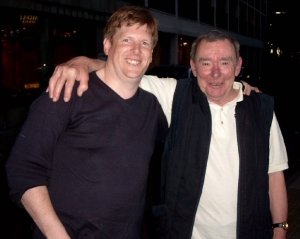
Who was Raymond Jones, the fan who first alerted Brian Epstein to The Beatles by asking for a copy of “My Bonnie”? Alistair Taylor said it was him.
Alistair Taylor—Hello Goodbye
In May 2004 I was fortunate enough to spend a couple of hours with Alistair Taylor on a trip from his home in Matlock, Derbyshire to Liverpool. Alistair was known as The Beatles’ “Mr. Fix-it” and was a vital cog in the day-to-day operation of NEMS Enterprises—Epstein’s shop was called NEMS, which stood for North End Music Stores—the business set up by Brian Epstein to manage The Beatles. Taylor was Epstein’s personal assistant and the man to whom John, Paul, George and Ringo turned to if they needed anything.
For the next two hours I enjoyed the company of a most entertaining man. He was great fun, humble and full of stories. He didn’t see the need to talk up his part in The Beatles’ story, something he had been accused of in the past.
Alistair was born in Runcorn, Cheshire, to the south of Liverpool, on 21 June 1935. After a brief spell in London, where he met his wife, Lesley, he returned north to work for a timber merchant, William Evans in Widnes. The job, he discovered, didn’t satisfy him.
So Alistair, how did you come to work for Brian?
“I saw an advert in the local paper for a Sales Assistant in NEMS, ‘apply to Brian Epstein’. Naturally, I quickly answered the ad. When I met Brian, we talked about all aspects of music. My love was always for jazz, which was different to Brian who loved classical music. At the end of the interview, which lasted for two hours, Brian said I was over-qualified and he couldn’t pay me enough for the position on offer.
“My heart sank.
“But then he said he wanted to employ me as his personal assistant, for £10 per week. I didn’t understand what he wanted, but of course I said yes. It was the beginning of a great relationship with Brian, which had its highs and lows. He sacked me four times, and I resigned a couple of times too.
“Brian was gay. I knew that. He knew that I knew that, and it didn’t matter. He knew I wasn’t gay, and was happily married. It never interfered in our business relationship. At this point, I want to say something that has been edited out of interviews in the past. I loved Brian. It doesn’t have to be complicated by homosexual overtones. It wasn’t like that. I loved him. He was awkward, irritating, annoying and frustrating, but I loved him. Full stop.
“Once I had started working there, Brian and I had a little bet on each big record coming out. We would have to say if it was going to be a hit or not. Needless to say, even though he didn’t like pop music, he could hear a hit a mile away. I rarely got it right; I can’t remember him getting it wrong, ever. The bet was only a G & T (Gin and Tonic) but he was incredible.
“He introduced this remarkable system of record ordering with these little tags so that we knew when we had to re-order. In the end, if Brian put in a large order for a particular record, the other retailers would order them too. Brian was that impressive, and his opinion was often sought”.
Who was ‘Raymond Jones’?
“I was Raymond Jones. Kids were coming into the shop and asking for this record ‘My Bonnie’ by The Beatles. We didn’t have it and, until somebody put in an actual order, Brian wouldn’t do anything. You see, Brian had this claim that if you ordered a record by anyone, anywhere, he would find it. However, no matter how many people asked for it, nobody had ordered it by paying a deposit. Particularly as this was a German import, this was even more important.
“I knew we would sell lots of copies, so I made out the order form and paid the deposit from my own pocket in the name of Raymond Jones, one of our regular customers. Now we had an order, Brian and I set about tracking it down. Of course, it was recorded in Germany and was recorded under the name of Tony Sheridan and The Beat Brothers. Brian ordered the first batch and they sold out in no time at all. So, a few years ago, I announced that I was the real Raymond Jones. And that is it—it was me”.
How does this fit? Local radio presenter and writer Spencer Leigh tracked down the real Raymond Jones a few years ago. Bob Wooler even had an address for him at 48, Stonefield Road, Liverpool. Therefore, there was also a local lad called Raymond Jones, who asked Brian Epstein for the record and told him, when asked, who The Beatles were and where they were playing.
But what about Alistair’s tale?
Well, we know that Raymond Jones came into the shop and talked to Brian about The Beatles and the record, but maybe did not place the order and paying the deposit required before Brian would track it down. Therefore, Alistair told me that he simply used the real Raymond Jones’ details for the order, and paid the deposit himself. Not the normal practice but, as this was a German import, taking a deposit was the standard for NEMS.
Whatever the motive, in this small way Alistair became ‘Raymond Jones’ but the real Raymond Jones remains an integral part of the story.
Of course, the big event was the trip to The Cavern on 9 November 1961. What exactly happened?
“Brian wanted to go and see The Beatles who were so popular. Everyone was talking about them and we had sold so many copies of the record. Brian didn’t know where The Cavern was, which of course I did as I had been there when it was a jazz club. He was amazed to realize how close it was.
“We went down into the cellar, and that smell of rotting fruit and vegetables never left The Cavern. It was smelly and horrible, and Brian and I looked out of place in our smart suits. We sat at the back and watched while the place went mad for these scruffy musicians. The noise was terrible. They were loud, awful, unprofessional, scruffy and frankly not that good. But we both couldn’t help tapping our feet to the rhythm. They had something. Don’t ask me what it was, because I don’t know. If I did I would have been a rich man. I call it ingredient ‘X’.
“They played five songs I think, but the one that made us stop and take notice was when they introduced a song of their own called ‘Hello Little Girl’, which The Fourmost later recorded. It wasn’t just that they were prepared to play their own song but that it went down well. Maybe that is what Brian saw in them.
“Anyway, we left and went to the Peacock Restaurant as planned, and that is where Brian dropped the bombshell. He asked me ‘Who do you work for? Me or NEMS? What would you say to me managing The Beatles?’ I was a little lost for words.
“Brian was a man who was bored easily, and The Beatles came along at the right time. He then made me the offer, which could have made me a wealthy man. He offered me a percentage of The Beatles, there and then. I couldn’t contribute anything financially, so I said I couldn’t accept his offer. Brian understood but asked me if I would work for him in managing The Beatles. Of course I would. I would have done anything for him. And so that is where it all began. It was the biggest financial mistake of my life, but you can’t change things”.
How did you get this title of ‘Mr. Fix-it’?
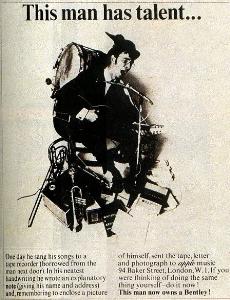
“Whatever The Beatles wanted, I fixed it for them. I was Brian’s general manager, so I stayed at home while the boys went on tour, because I looked after all the artists for Brian, not just The Beatles. Later on, I sorted out cars, houses, trains and planes and even buying an island. Whenever they went on tour, I made the arrangements. I loved it; it was great fun. I was there when they signed their management contract with Brian, which, of course, Epstein didn’t sign. I signed as witness, but Brian wouldn’t. I think he wanted a way for The Beatles to get out of it if it didn’t work out. He was an honourable man, and was stepping out into a new world. If it did go wrong, he didn’t want them tied into a long, complicated contract. That’s what he was like.
“They just went along the line and signed, and then I did. I remember Paul saying something like, ‘We’re going to be stars, but if we don’t make it together, I’m going to be a star’. That was Paul for you”.
What do you remember about them in Liverpool?
“They were always hanging around the shop. I remember John and Paul coming into NEMS and asking if they could borrow a typist, called Barbara I think. They brought song lyrics in on scraps of paper—once it was on toilet paper—and she typed them up and then threw the scraps in the bin. Imagine what they would be worth now”.
So Alistair, with their fame bringing untold riches, and the pick of the girls, surely there must have been scandals and claims?
“The Beatles had managed to get into trouble with local girls, and most of the girls who were pregnant were looked after by Brian. I often had to be the one to hand out the cheques. It is true that many of these girls could have come forward and destroyed the image that The Beatles had tried so hard to portray, but they were willing to settle without undue publicity”.
We started to discuss the time when he thought The Beatles had had enough of touring. Most people know that after their last concert in 1966, George famously said that he was no longer a Beatle. But to my amazement, Alistair recalled a much earlier conversation.
“George told me back in 1963 that he was already starting to have second thoughts about fame”.
He recalled an incident when The Beatles were flying to London from Liverpool Airport, but George hadn’t turned up. The others went to London, leaving Alistair to contact George.
“I rang him at home to find out what was going on. George said, ‘I don’t want to be a Beatle’. In a panic, I went round to talk to him and George said he didn’t like all the pressure and the frenzy of the crowds and the fans. Thankfully, he came to his senses and the matter was never discussed again until they finished touring in 1966”.
Brian was determined to get them a record deal, wasn’t he?
“Oh yes. I remember seeing him at his desk crying. In the end, he virtually resorted to blackmail. NEMS was the biggest record retailer around, and so he threatened to withdraw his business”.
Was NEMS that big? How does that work?
“He could buy his records through a different company, like Decca. It was only anything on HMV (His Masters Voice) that he had to buy from EMI direct, and that wasn’t a big concern. The rest of the records he could get elsewhere, so that was a lot of business to them. I believe it was only this that made them do something. Of course, they just fobbed him off on to George Martin who was looking after comedy records, but at least it was something”.
It all went ‘pear-shaped’ at Apple, didn’t it?
“I was the face of Apple for the advertising. McCartney asked me to pose as a oneman band in the newspapers to get people to send in their tapes for consideration. Then everyone sent stuff in and it all quickly went mad. Money was being wasted and I could see it. People were leeching off them—it was a disaster.
“The end was no great surprise to me. I was out at a business lunch when I received a phone call from the office. I was told to come straight back. I told them I couldn’t as I was in a business meeting. The message was, ‘come back now’. I had a feeling what was going on. I made it back to Peter Brown’s office. He basically told me that I was out and I had the afternoon to clear my desk. There was Allen Klein’s hit list and I was number one on the list—I saw it. I went home and Lesley knew straight away there was something wrong. She even guessed that I’d lost my job. I wanted to get in touch with the lads, not to beg for my job back—I had too much pride for that—but to see if they knew what was happening. I rang them all—one of them I know was in the background when I called—but they wouldn’t speak to me. That hurt me. After all I’d done, they couldn’t and wouldn’t speak to me. I was closest to Paul, spending time at his house more than the others, because he was still living in London. The whole ‘Hello, Goodbye’ thing happened at Paul’s house. I was round there one night and I asked him how he wrote songs. We sat at his piano and he said, ‘I’ll say one thing, you say the opposite’ so we went black, white, yes, no, hello, goodbye. Not long after, the song ‘Hello, Goodbye’ was written, so I like to think of that as my little contribution”.
Alistair was done with The Beatles and, to their shame, he was left to eek out a living washing dishes in a little Bed & Breakfast in Derbyshire. He could have had millions thanks to Brian, but turned his opportunity down. When he was sacked from Apple, they could have looked after him, but they didn’t. Alistair and I had a great journey together and he gave me his phone number to follow up. He gave an interview to Fulcrum TV and then sadly, a few weeks later he died quite suddenly. He had seen so much and been so close to The Beatles’ inner circle, and yet had been let down by them. However, being the gentleman that he was, he didn’t bear any grudges against them, but rather talked fondly of them.
It was great to meet you Alistair—hello and goodbye.


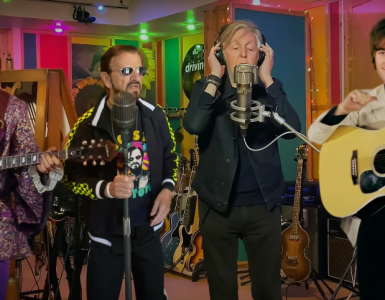
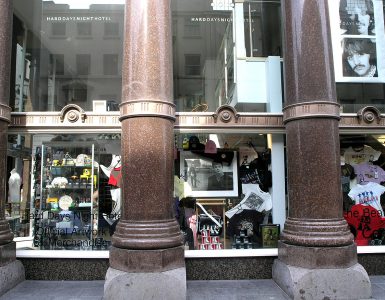
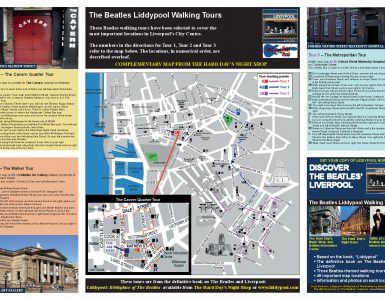
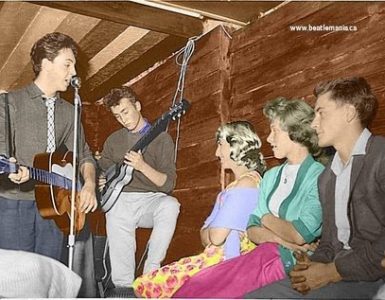









[…] Alistair Taylor […]